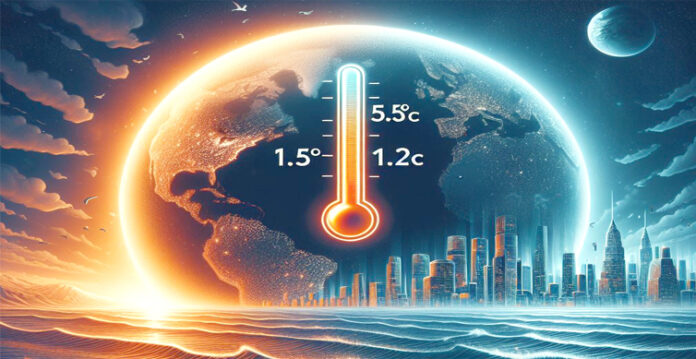The increasing frequency and intensity of wildfires across the globe serve as a stark reminder of the worsening climate crisis. Recent catastrophic fires in South Korea and California have underscored the devastating impact of rising global temperatures, prolonged droughts, and extreme weather conditions. Experts warn that without urgent and effective climate action, such disasters will only become more frequent and severe.
In March 2025, South Korea experienced its worst wildfire disaster on record, with North Gyeongsang Province bearing the brunt of the devastation. The fires claimed at least 28 lives, displaced over 37,000 people, and destroyed more than 38,000 hectares of land. Historic landmarks, including the Gounsa Temple, were reduced to ashes, while UNESCO World Heritage sites in Andong faced severe threats. According to climate experts, ultra-dry conditions and strong winds exacerbated by climate change fueled the flames, turning forests into tinderboxes.
Similarly, California has been battling increasingly severe wildfires over the years. In 2024 alone, the state recorded 8,024 wildfires, burning over one million acres, destroying 1,716 structures, and causing one fatality. The Park Fire, which ignited in July 2024, was particularly destructive, leaving behind widespread destruction and forcing thousands to evacuate. Scientists have consistently linked the intensifying wildfire season to climate change, citing prolonged droughts, higher temperatures, and altered precipitation patterns as key contributors.
Also Read: Impact of Climate Change on Migratory Birds at National Zoological Park’s Wetlands
Despite mounting evidence, some global leaders continue to downplay the severity of climate change. Political figures such as former U.S. President Donald Trump, who withdrew from the Paris Climate Agreement and rolled back environmental regulations, have demonstrated a lack of urgency in tackling the crisis. Experts argue that such inaction hinders global efforts to mitigate climate risks, leaving millions vulnerable to disasters like wildfires, floods, and extreme heatwaves.
India, too, is witnessing an alarming rise in wildfires, particularly in regions like Uttarakhand and Himachal Pradesh. The dry conditions and soaring temperatures have led to frequent forest fires, endangering both human and animal life. The recent incidents in South Korea and California should serve as a warning for India to strengthen its wildfire management strategies.
Investing in advanced technologies, such as AI-powered satellite monitoring, can significantly improve early wildfire detection and response. California has already begun deploying such systems to track fire activity and improve emergency response. Additionally, educating local communities about wildfire risks and implementing fire-safe practices can reduce human-induced ignitions. Community-based fire management programs and sustainable forest management techniques, including controlled burns and clearing of flammable underbrush, can further mitigate the spread of wildfires.
However, experts emphasize that addressing the root cause of climate change—greenhouse gas emissions—is paramount. A transition to renewable energy sources, increased energy efficiency, and large-scale afforestation are necessary steps toward long-term climate solutions. Countries must also work together to strengthen international agreements like the Paris Climate Accord and ensure leaders are held accountable for their environmental policies.
As climate change accelerates, ignoring its impact will only lead to more catastrophic events, threatening lives, economies, and ecosystems worldwide. The recent wildfires are a clear indication that the time for decisive action is now.


